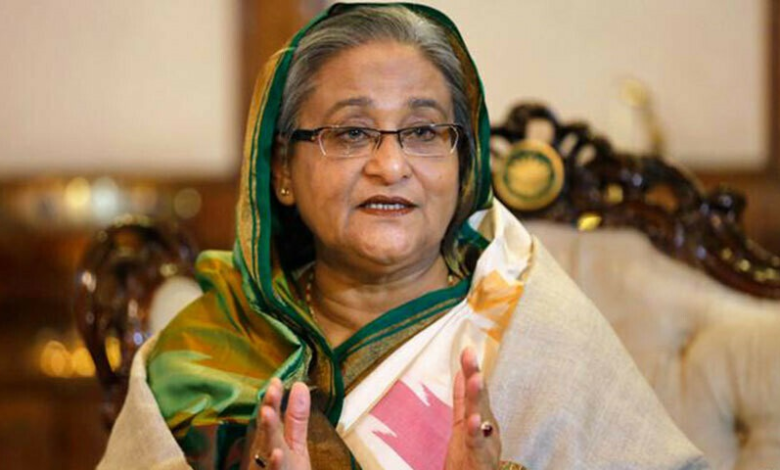Murder Case Filed Against Former Bangladesh PM Sheikh Hasina After Ouster Amid Quota Protest Violence

News Mania Desk/Agnibeena Ghosh/13th August 2024
A murder case has been filed against Bangladesh’s ousted Prime Minister Sheikh Hasina, marking a significant escalation in the ongoing political turmoil following her recent resignation. The case, which implicates six others alongside Hasina, relates to the death of a grocery store owner, Abu Sayed, during violent clashes that erupted last month amid widespread protests against the government’s controversial quota system.
Sheikh Hasina, who fled to India after stepping down last week, has faced mounting pressure as protests against her government’s policies intensified. The quota system, which had long been a point of contention, sparked nationwide demonstrations that escalated into deadly violence. The case against Hasina was filed by well-wishers of Abu Sayed, who tragically lost his life in police firing during a rally on July 19 in Mohammadpur. This development has drawn significant attention, as it is the first legal action taken against the 76-year-old former leader following her ouster.
The charges do not stop at Hasina; they extend to several high-profile figures within her administration. Among the accused are Awami League General Secretary Obaidul Quader, former Home Minister Asaduzzaman Khan Kamal, and former Police Inspector General Chaudhary Abdullah Al Mamun. The inclusion of these prominent individuals underscores the severity of the accusations and the deep-rooted tensions within Bangladesh’s political landscape. Additionally, several high-ranking police officers and government officials have been named in the case, reflecting the widespread discontent and calls for accountability following the recent violence.
The unrest that has plagued Bangladesh since Hasina’s departure reached a peak on August 5, leading to over 230 deaths in the aftermath of her government’s collapse. The total death toll from the quota protests, which began in mid-July, has now surged to 560, illustrating the profound impact of the political crisis on the nation.
In the wake of Hasina’s departure, an interim government has been established to navigate the country through this turbulent period. Nobel laureate Muhammad Yunus, aged 84, has been appointed as the chief advisor of this interim administration. Last week, Yunus announced his 16-member advisory council, signaling the beginning of efforts to stabilize the country and prepare for future elections.
The interim government has already engaged in discussions with various political entities, including the Bangladesh Nationalist Party (BNP), one of the leading opposition groups. On Monday, seven political parties, including the BNP, held separate meetings with Yunus. The parties expressed their support for the interim government’s efforts, emphasizing the need for adequate time to create a conducive environment for free and fair elections.
BNP Secretary General Mirza Fakhrul Islam Alamgir highlighted the party’s backing of the interim government, stating that no specific timeframe for elections was discussed. Instead, the focus remained on ensuring a stable environment for future polls. Furthermore, there are reports that the BNP has requested Yunus to withdraw legal cases against its leaders, including the party’s chief Khaleda Zia and acting chairman Tarique Rahman. Zia, who was released following Hasina’s ouster, had been serving a 17-year prison sentence for corruption since 2018.
As Bangladesh navigates this challenging chapter, the nation remains on edge, with the murder case against Sheikh Hasina and others likely to further inflame an already volatile situation.






